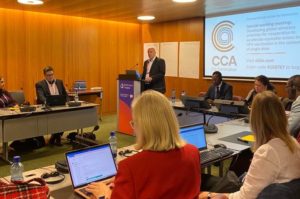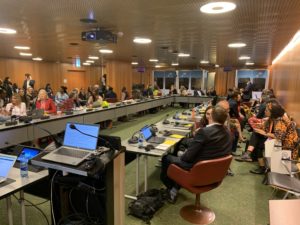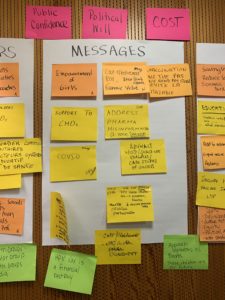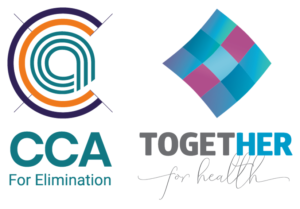8th December 2022
In a previous blog, we discussed the announcement from the World Health Organization (WHO’s) Strategic Advisory Group of Experts on Immunization (SAGE) that a single dose of human papillomavirus (HPV) vaccine delivers a comparable level of protection against HPV infection as two doses of HPV vaccine.
It is anticipated that the WHO will share an official endorsement of SAGE’s advice, and a subsequent change to HPV vaccination guidelines. In light of this, CCAE conducted a ‘temperature check’ survey, to understand how network organizations were engaging with the shift to single dose and if they would value any support from CCAE on the matter.
The survey was completed by 14 network organizations, and there was consensus in many of the responses. For example, there were shared opinions particularly around gaps in guidelines and implementation strategies at the country level, which were both considered barriers to the successful implementation of single-dose vaccination programs. Similarly, concerns around the effectiveness of single-dose schedules have been heard by numerous organisations, reflecting the need for clear and coordinated messaging on the shift.
These survey responses, and our analysis of them, can be found here. They will be used to inform CCAE’s strategy for 2023, and the details of this will be shared in the first quarter of 2023.
In the meantime, there are several network organizations doing fantastic work to provide insight on the shift to single-dose, including PATH.
Their suite of resources on current evidence for single-dose HPV vaccination is considered the standard on the topic; providing both high-level and in-depth information on HPV and cervical cancer, HPV vaccines, and the potential impact of a single-dose regimen.
Links to the resources in both French and English are listed below.
English
French




 January is Cervical Cancer Awareness Month, a time to reflect on the impact cervical cancer has on women, families, and communities around the world.
January is Cervical Cancer Awareness Month, a time to reflect on the impact cervical cancer has on women, families, and communities around the world.